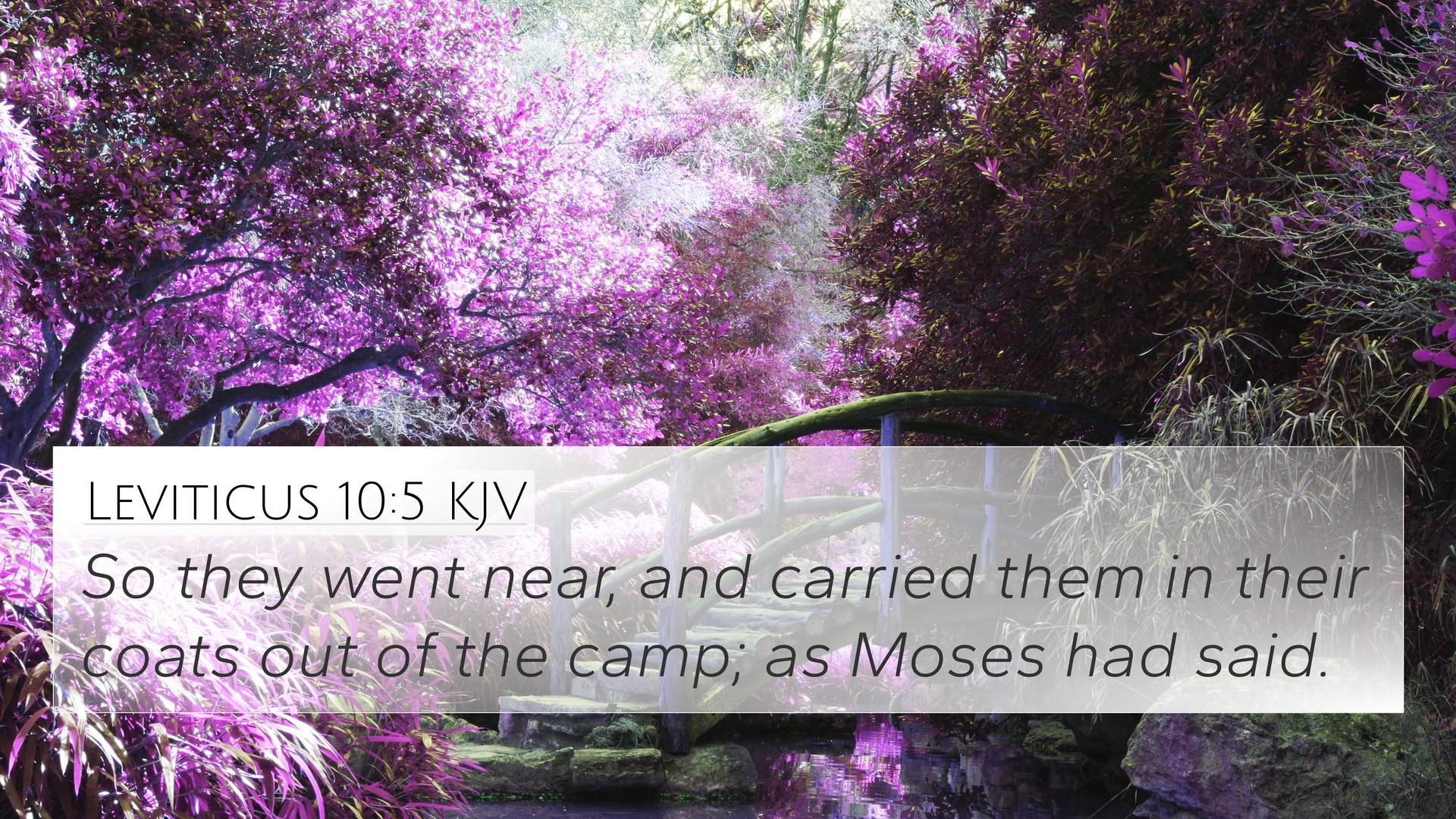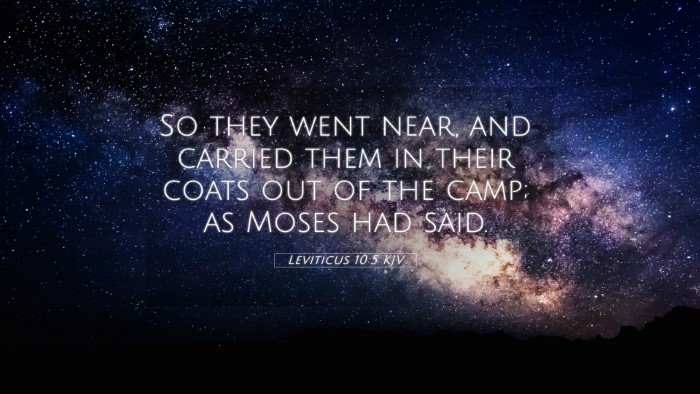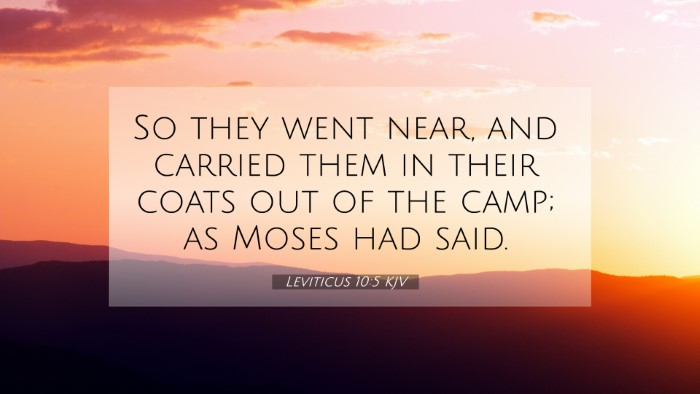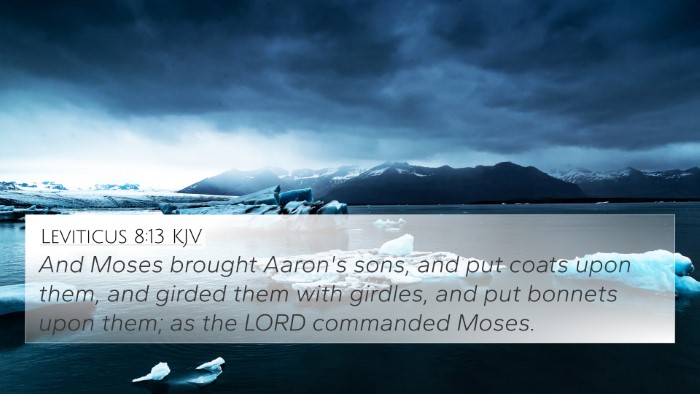Understanding Leviticus 10:5
Verse: Leviticus 10:5 "So they went near and carried them in their coats out of the camp; as Moses had said."
Summary of Biblical Context
The verse takes place shortly after the tragic incident of Nadab and Abihu, Aaron's sons, who offered "strange fire" before the Lord and were consumed by divine judgment. It reveals the somber and serious nature of God's holiness, as well as the responsibilities placed upon His priests.
Commentary Insights
-
Matthew Henry:
Henry explains that this verse illustrates the careful and respectful conduct required in dealing with the matters of God. The act of carrying out Nadab and Abihu’s bodies signifies the consequences of irreverence to divine commandments and emphasizes the need for purity in worship practices.
-
Albert Barnes:
Barnes points out that the instructions given by Moses underline the seriousness of obeying God’s law. The act of removing the bodies served as a solemn reminder that God’s judgment must be respected, and the priests must maintain their duties faithfully.
-
Adam Clarke:
Clarke highlights the obedience of the priests in following Moses' command. Their actions demonstrate a commitment to uphold God's guidelines, revealing an essential aspect of the priestly role in ensuring that worship remains sacred and in accordance with divine directives.
Thematic Connections
This verse can be understood within the larger theme of God's holiness and the severity of disobedience. It resonates with various other passages in Scripture that address the sanctity of worship and the consequences of failing to honor God correctly.
Bible Verse Cross-References
Several Bible verses relate closely to Leviticus 10:5. The following cross-references offer deeper insights into the themes present in this verse:
- Hebrews 12:28-29: Calls for reverent worship, as God is a consuming fire.
- Numbers 3:4: Discusses the death of Nadab and Abihu and God's judgment on improper worship.
- Deuteronomy 4:24: Reinforces God’s consuming nature in the context of idolatry and false worship.
- Leviticus 16:1-2: Advises on how to approach God to avoid death, underlining the seriousness of priestly duties.
- 1 Samuel 15:22: Demonstrates that obedience to God is valued over sacrifices, paralleling the lessons from this account.
- Exodus 30:9: Addresses the prohibition against offering strange incense, highlighting the necessity of proper worship.
- Ezekiel 22:26: Discusses the neglect of God’s law and its severe consequences, resonating with the fate of Nadab and Abihu.
Lessons and Applications
This passage emphasizes the need for careful observance of God's commands, especially in acts of worship. It urges believers to reflect on the seriousness of their relationship with God and stresses the necessity of approaching Him with reverence and adherence to His instructions.
Key Takeaways:
- The importance of following God's guidelines in worship.
- The grave consequences of irreverence in the presence of God.
- The relationship between obedience and holiness in the priestly role.
Further Study Topics
For those interested in deeper research, consider exploring the following topics:
- Tools for Bible Cross-Referencing: Learn how to effectively use a Bible concordance or cross-reference guide.
- Bible Themes and Connections: Study how similar themes connect across both the Old and New Testament.
- Comparative Bible Studies: Engage in comparing accounts of obedience and disobedience throughout scripture.
Conclusion
Leviticus 10:5 serves as a powerful reminder that God’s holiness demands respect and obedience. Through the study of this verse and its connections, believers are encouraged to engage in worship that honors God's character and guidelines, fostering a deeper relationship with Him.



